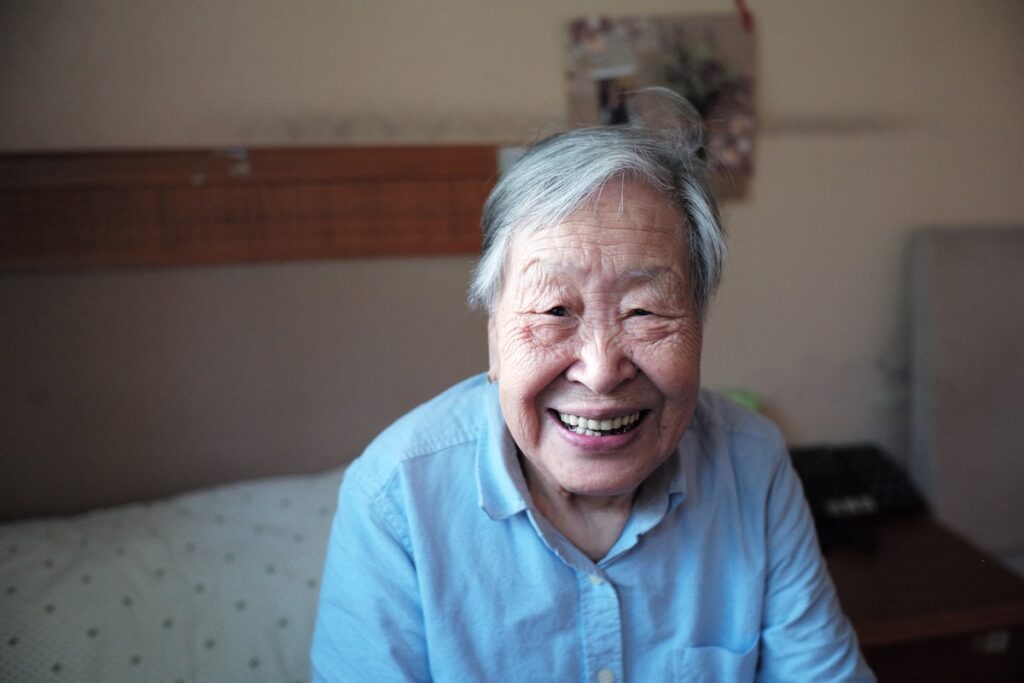
Advance Care Planning (ACP) involves people with dementia discussing their wishes and preferences with their families and physicians regarding their future care. It is particularly important to begin these conversations early due to the cognitive decline associated with the disease progression (WHO, 2018). Failing to initiate these discussions may cause patients to be excluded from the decision-making process.
It has been reported that people with dementia are less likely to be given the opportunity to engage in ACP conversations, resulting in them experiencing a poorer quality of care at the end-of-life (NHS England, 2018). It is imperative to understand the reasons behind physicians’ reluctance in leading ACP discussions with people with dementia and their families. While organisational and practical barriers have been highlighted in previous reviews, they did not examine moral dilemmas in detail. The current review, therefore, bridged the gap by identifying the moral considerations faced by physicians in the implementation of Advance Care Planning (ACP).

Advance Care Planning (ACP) conversations with people with dementia are particularly important because they are time-sensitive.
Methods
The researchers used three databases (PubMed, Web of Science, and PsycINFO) to systematically search the existing literature. The reviewers adhered to the Preferred Reporting Items for Systematic Reviews and Meta-Analysis Statement (PRISMA) guidelines. The initial search was carried out in May 2018, and subsequently updated in August 2019.
The review included both systematic reviews and primary studies that address moral considerations that may pose as either a facilitator or a barrier for physicians to engage in ACP conversations. It is important to note that the review excluded discussions surrounding research participation and euthanasia.
The review employed two different checklists to assess the methodological quality of the included papers: the MMAT (Mixed-Methods Appraisal Tool) for primary studies and the AMSTAR-2 (A MeaSurement Tool to Assess Systematic Reviews) for systematic reviews.
Thematic analysis was conducted on the included studies. As such, the researchers analysed the raw data, grouped similar meaning text, and developed themes.
Results
The researchers identified 11 systematic reviews and 13 primary studies. Five main themes emerged, which included beneficence and non-maleficence; respecting dignity; responsibility and ownership; relationship; and courage.
Beneficence and non-maleficence
Physicians want to act in the patients’ best interest and avoid any harm. However, this can be difficult to implement in practice. Physicians may avoid ACP conversations with patients, fearing that their preferences may not be in their actual best interest. This is often a result of patients being unaware of the prognosis for dementia. These conflicts can also occur where the patients’ preferences change over time and are no longer in line with the physicians’ expectations. Physicians find it challenging to implement these wishes when they run contrary to their best interest.
The emotive nature of ACP conversations is also perceived as a double-edged sword. One paper describes physicians assuming two identities, both as a professional and a ‘fellow human being’ (Booiij et al., 2013). While the physicians’ role requires them to initiate these discussions to help patients and families maintain hope and provide emotional support, their personal feelings towards death and the end-of-life may hold them back. Physicians’ reluctance may further be compounded by patients or families who intentionally avoid these topics, as they worry these conversations may instead induce anxiety and cause harm.
Respecting dignity
Physicians experience moral dilemmas when trying to respect the patients’ decisions while wrestling with their own differing views. These include opinions on the end-of-life course and cultural, spiritual, and religious beliefs. These differences can stem from families’ lack of understanding of the dying process, physicians’ preference in taking more active treatments, or patients’ changing wishes, requiring physicians to decide between the current request and the prior advance decision.
ACP conversations can be a good opportunity for physicians to learn about the patients’ life story as well as provide patients and families a better understanding of the prognosis. While caregivers view this collective decision-making process as an important condition to achieve a good death, it is often difficult for physicians to relinquish their own personal views.
Responsibility and ownership
Physicians have different views on who should be initiating ACP conversations. Some regard this as their professional duty; they need to take the initiative to ensure the decisions are in line with the patients’ wishes. However, other physicians prefer not to take on this role. Some feel that this is other’s responsibility while others worry that initiating these conversations at the wrong time would be insensitive and harmful.
Relationship
Physicians report that establishing long-term relationships with families facilitates ACP discussions due to a good understanding of the families’ preferences and relational dynamics. Families also tend to place more trust in physicians and are more receptive to making collective decisions on future care. However, some physicians find it difficult to draw the line between professional and personal relationships. Being too close on a personal level can be perceived by some families as inappropriate and unprofessional. Physicians’ fear of upsetting the relationship may also at times prevent them from resolving conflicts related to future care.
Courage
Courage is needed to initiate ACP conversations, especially in cases of relationship crises where caregivers’ decisions strongly contrast against the patients’ preferences. Physicians are often reluctant to lead ACP conversations in families with poor relational dynamics due to the difficulty in establishing consensus. This hesitation is even harder to overcome when they are uncertain about the legal status of ACP, fearing that they may be blamed and face legal repercussions if the patients die.

ACP conversations initiated by physicians were related to acting in patients’ best interest and avoiding potential harm, respecting patients’ dignity, professional responsibility and ownership, therapeutic relationship, and courage to have these discussions with families.
Conclusions
The review highlights several moral considerations that can either promote or hamper physicians from initiating ACP conversations. Despite the desire to provide care in accordance with professional standards and families’ preferences, they do not always go hand in hand. It is important to recognise these moral dilemmas as they can impede the implementation of ACP.

The review highlights several moral considerations that can either promote or hamper physicians from initiating Advance Care Planning conversations.
Strengths and limitations
The researchers adhered to good research practice by registering the protocol on PROSPERO and being transparent with the screening and quality appraisal process. They have used broad and inclusive search terms which minimise the risk of missing relevant studies.
While the review captured literature published in multiple languages, most of the studies were carried out in the UK and other European countries. Therefore, the findings may not be generalisable to other countries with different sets of societal and cultural norms. Furthermore, the quality of the included systematic reviews is rated as critically low, which the researchers attributed to the AMSTAR-2 tool being prone to the floor effect (i.e. the majority of studies clustering at the lower end of the scale). Without an alternative tool to evaluate the quality of the included reviews, the findings need to be interpreted with caution.

The majority of the studies included in this review were conducted in the UK and Europe, thus the findings may not be generalisable in other cultural and societal contexts.
Implications for practice
The review underscores the importance of recognising the moral dilemmas experienced by physicians that may hinder the implementation of ACP. This not only applies to professional associations, but also includes patients, families, and society at large. The researchers advocate the need for
an open, safe and honest discussion of the topic, including the detrimental effect it may have on the physician’s job satisfaction in the long term.
It is encouraging to see recommendations (e.g. Harrison Dening, Sampson & De Vries, 2019) being published to support physicians delivering ACP. However, professional associations also need to provide adequate training to equip physicians with the knowledge, skill, and confidence to navigate these conflicts and challenges.

An open, safe and honest discussion about Advance Care Planning is needed, including the detrimental effect it may have on physician’s job satisfaction in the long term.
Statement of interests
Justin Chan knows Professor Jenny van der Steen, one of the researchers involved in the study, and has consulted her on another project. However, he was not involved in this study.
Links
Primary paper
Keijzer-van Laarhoven, A. J., Touwen, D. P., Tilburgs, B., van Tilborg-den Boeft, M., Pees, C., Achterberg, W. P., & van der Steen, J. T. (2020). Which moral barriers and facilitators do physicians encounter in advance care planning conversations about the end of life of persons with dementia? A meta-review of systematic reviews and primary studies. BMJ open, 10(11), e038528.
Other references
Alzheimer’s Society. (2018). Alzheimer’s Society’s view on demography. Retrieved from: https://www.alzheimers.org.uk/about-us/policy-and-influencing/what-we-think/demography
Booij, S.J., Engberts, D.P., Rödig, V.,Tibben, A., & Roos, R.A.C. (2013). A plea for end-of-life discussions with patients suffering from Huntington’s disease: the role of the physician. Journal of Medical Ethics, 39: 621-624.
Harrison Dening, K., Sampson, E. L., & De Vries, K. (2019). Advance care planning in dementia: recommendations for healthcare professionals. Palliative care, 12, 1178224219826579.
NHS England (2018). Advance Care Planning (ACP) for people with dementia in all care settings. Retrieved from: https://www.england.nhs.uk/wp-content/uploads/2018/04/my-future-wishes-advance-care-planning-for-people-with-dementia.pdf
World Health Organisation. (2018). ICD-11 (Mortality and Morbidity Statistics). Retrieved from:https://icd.who.int/dev11/l-m/en#/http://id.who.int/icd/entity/546689346
Photo credits
- Photo by Jeremy Wong on Unsplash
- Photo by Marcelo Leal on Unsplash
- Photo by Jixiao Huang on Unsplash
- Photo by JD Mason on Unsplash
